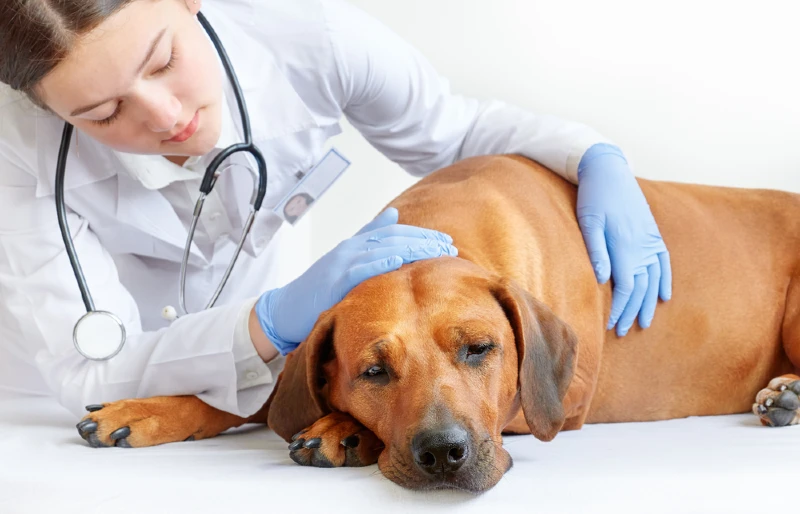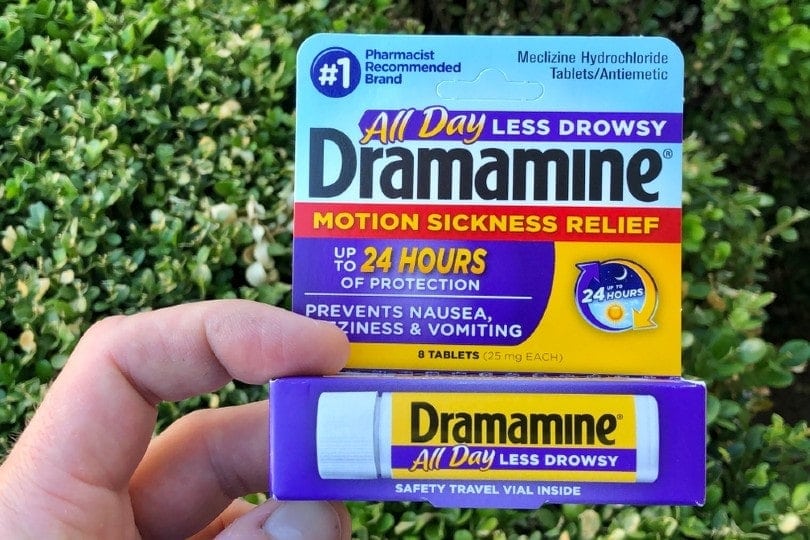Urinary Blockage in Cats: Signs, Symptoms & Treatment (Vet Answer)
By Dr. Kim Podlecki, DVM (Vet)
Updated on
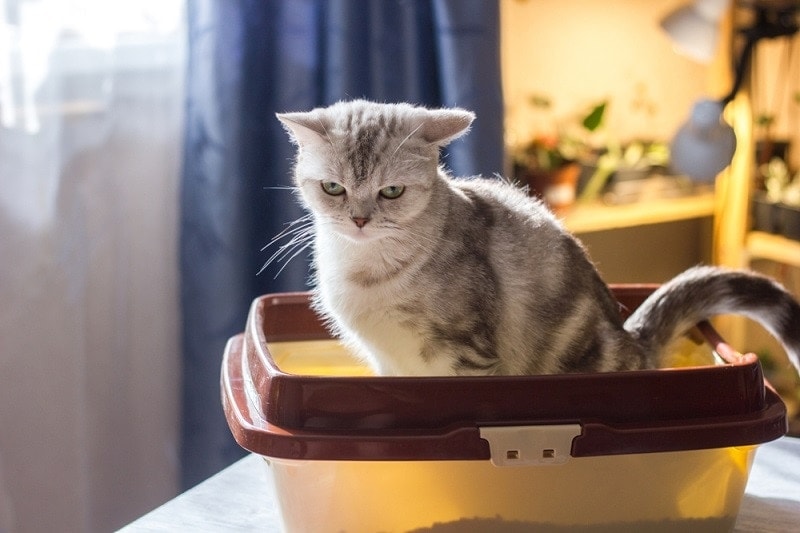
Have you noticed that your male cat is going in and out of the litterbox more frequently? Have you noticed that he may be howling or vocalizing when trying to urinate? Maybe you’ve noticed that he may be vomiting or have a decreased appetite and energy. If your male cat has been showing any of these signs, he may be suffering from a urinary blockage.
Urinary blockage, otherwise known as urethral obstruction, is a common and deadly condition seen most often in male cats. While female cats can suffer from this condition, it is extremely rare. But how do you know if your cat is suffering from this condition? If he is, what can be done, and what should you expect?
Signs of Urinary Blockage
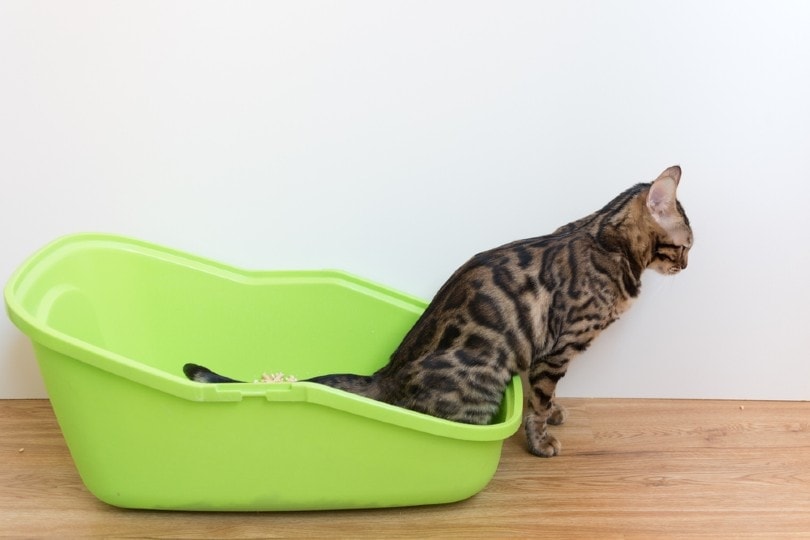
Leading up to a complete urinary obstruction, some cats may or may not exhibit abnormal signs. These can include bloody urine, straining to urinate, squatting and urinating multiple small areas instead of one large pee, or general discomfort while urinating. Some cats will urinate out of the litterbox. If you haven’t seen your cat urinating out of the box, make sure to check your favorite throw pillow, bathroom rug, blanket, or laundry basket! Cats love to urinate in squishy areas when not feeling well.
Sometimes, cats will not exhibit abnormal behavior, or owners won’t notice until they are completely blocked. Signs of complete urethral obstruction include going in and out of the litterbox multiple times and not being able to pass any urine, vocalizing when in the box, vocalizing or meowing while walking, walking with a wide stance, or vomiting.
Owners may also notice their male cats excessively licking themselves after attempting to urinate. The longer a cat can’t urinate, the more sick they become. The cat may then become anorexic, start to have trouble breathing, become very lethargic, and even be unable to walk.
Please do not wait until your cat is sick to take them to the veterinarian! Cats, especially male cats, should be seen by your veterinarian as soon as any abnormal urinary signs are seen.
You may wonder if it’s OK to wait and see if your cat gets better over the weekend. This is not recommended! If your cat is truly suffering from a urinary blockage, it is a fatal condition if left untreated. Therefore, time is of the essence. If you are concerned about abnormal urinary behavior in your cat, please contact your veterinarian as soon as possible.
Why Does a Urinary Blockage Happen?
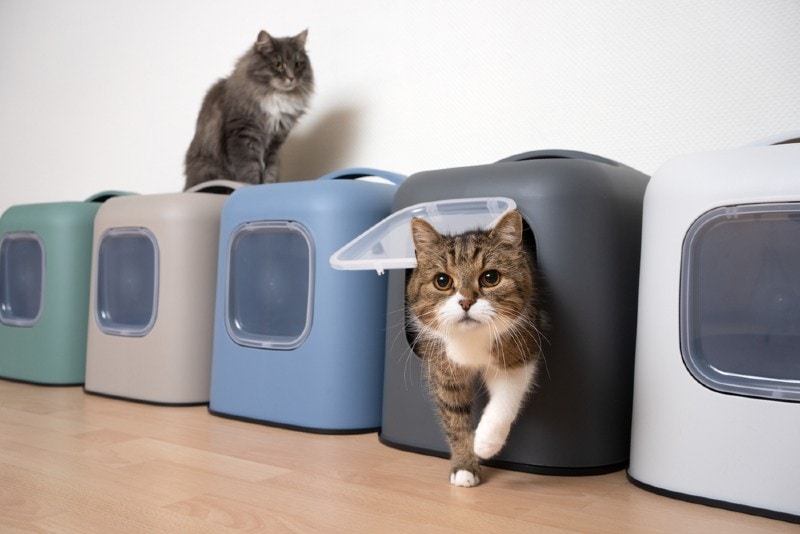
We can see urinary obstruction occur in cats for several reasons. Sometimes, it’s a simple urinary tract infection that becomes so severe the inflammatory cells, bacteria, and mucous block the cats’ ability to pee. Other times, cats can get stones that form in their bladder and eventually get stuck on the way out.
However, the more common reasons for urinary blockage are crystals and what’s sometimes referred to as sterile or idiopathic cystitis. Crystals are similar to having sand or sediment form in the bladder. If too many crystals try to leave at the same time, they will get wedged and become stuck in the urethra.
Sterile cystitis occurs when there is no infection, stones, or crystals in the bladder. The urinary tract will suffer inflammation and spasms often secondary to stress, and prevent the ability of urine to leave easily. Your veterinarian will test your cat’s urine and usually take a radiograph to determine the cause of the blockage. There is no way for you to know the reason for the blockage at home.
What Happens if I Suspect a Urinary Blockage?
No matter the cause, urinary blockage needs to be evaluated and treated by a veterinarian as soon as possible. It can’t be stressed enough that the longer you wait to pursue treatment, the sicker your cat will become and the more difficult it will be to treat him. Call your veterinarian immediately if you notice any of the signs we discussed. If it’s at night or over the weekend and your veterinarian is not open, you should contact the closest emergency veterinarian.
When you get to the veterinarian, and your cat is indeed “blocked,” the recommended treatment includes hospitalization. While hospitalized, your cat will have testing completed to determine why he is blocked. Once leaving the hospital, a prescription urinary diet is often recommended to help prevent this from occurring again in the future. Unfortunately, ~50% of cats will suffer another episode in their lifetime despite all therapies being pursued.
What Can I Do to Help Prevent Urinary Blockage?
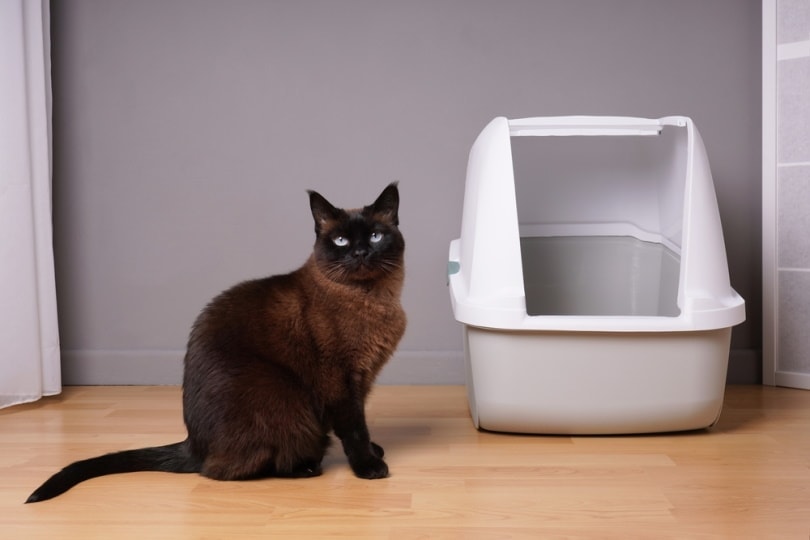
There is no magic formula to prevent this condition completely. Veterinary Universities across the country have devoted years to studying this disease and how to prevent it, which is how the development of prescription urinary diets came around. While there is nothing anyone can do to completely prevent urinary blockage, there are things that have been proven to help.
- Fresh water always. Some cats prefer running water from a fountain. Others may prefer water in a glass bowl instead of a plastic bowl. While I’d like to say this is a joke, cats can be known divas, and the material of the water bowl may make a difference in how much your cat drinks.
- Water in different areas of the house. Don’t just put out a single water bowl by the food bowl. Experts recommend water bowls around the house, such as by their favorite sleeping spot, in the bathroom, or by their cat tree. The more water the better.
- Using canned food. Canned food has a much higher water content than dry kibble. Substituting all or portions of your cat’s kibble diet with a canned diet can not only help with weight control, the added water content can also be great for their urinary tract.
- Multiple litterboxes. Experts recommend at least one additional litterbox per cat. For instance, if you have 4 cats, you should have at least 5 litterboxes.
- Keep litterboxes cleaned and in a quiet space. Boxes should be scooped once daily or more depending on the number of cats in the house. The litter should be changed at least once weekly. Again, more pending the number of cats in the house.
- Reduce stress. Cats are creatures of habit. They typically are not fans of change to their routines. So, when a new person or pet is in the house, furniture is moved, or owners leave for the weekend, some cats become stressed. Keeping your cats’ stress levels at a minimum may help to prevent urinary blockage.
Conclusion
Awareness of urinary blockage in cats, most commonly male cats, is essential. Once you know the severity of the disease, what signs to look out for, and how to decrease the incidence, your cat will thank you for your awareness. So please, next time your male cat is just not himself, howling when trying to go to the bathroom, or acting uncomfortable, contact your veterinarian as soon as possible.
See Also:
- Intestinal Blockage in Cats: Vet-Reviewed Signs, Causes & Treatment
- What Is Feline Idiopathic Cystitis in Cats? Important Answer!
Featured Image Credit: Sharaf Maksumov, Shutterstock





